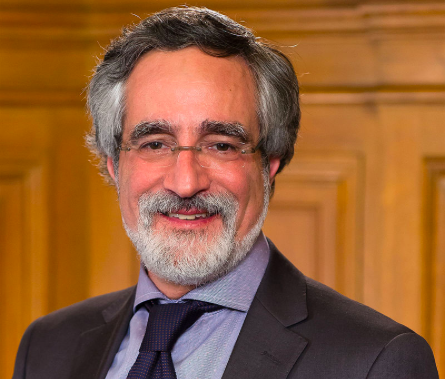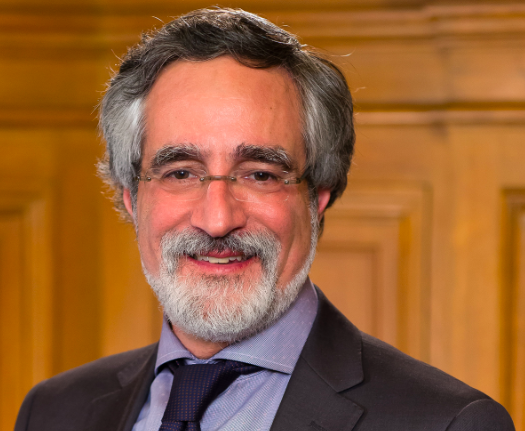
At the end of the Board of Supes meeting Tuesday, we got some dramatic clarity on why the Department of Public Health isn’t pushing to move more homeless people into hotel rooms.
And it wasn’t pretty.
In essence, Dr. Tomas Aragon, the public health officer, said that he wouldn’t go beyond what the Mayor’s Office wants.

He said that the issue of homelessness and COVID-19 was a “policy” matter that went beyond his role at the chief public health officer of the City and County of San Francisco.
And according to testimony at the meeting, he told several supervisors that if he defied the mayor and ordered more aggressive moves to put homeless people in hotels, he would lose his job.
That, it turns out, is wrong: The public health officer, according to a May 20 memo from the city attorney, is appointed by the Board of Supervisors, and ultimately reports to the board, not the head of DPH or the mayor. That’s state law.
Sup. Dean Preston said on Twitter:
I’m appalled at the lack of leadership here. The Health Officer has issued orders about what businesses can open, what sports can be played, and what construction can happen, but won’t issue orders to protect the health and safety of housed and unhoused neighbors.
What’s going on here is not just a lack of leadership at DPH. It’s a stunning lack of long-term vision in the Mayor’s Office.
Breed, as is her current practice, isn’t responding to my questions. But people who have spoken to her tell me that the mayor is taking a short-term approach to the COVID issue. She assumes that this crisis will pass, sooner or later, and she will want to focus on restoring the economy and creating jobs. And she doesn’t want to have to pay for, or deal with, hotel rooms full of formerly homeless people.
In other words, the administration wants to get back to “normal,” and normal means 8,000 people living on the streets or in shelters while the city spends $300 million a year on a problem that has been around for decades, and that nobody at City Hall seems to be able to solve.
Except that now, there’s the potential for a dramatic change.
Many of the hotels that could be used to house homeless people will not survive the two years or more before tourism comes back to San Francisco. There is property all over town (including some office buildings) that won’t be needed as people increasingly work from home.
This is a time to think about how tourist hotels and possibly some office buildings could be turned into permanent affordable housing.
Hotel rooms aren’t perfect for everyone; families need more spacious affordable housing. Some people need more supportive services. But for a significant percentage of the homeless population, the equivalent of SROs with private bathrooms would be a big step forward. Not just now but for the future.
But the mayor isn’t talking about that.
So here’s what the city’s public health officer had to say.
Sup. Hillary Ronen: Dr. Aragon, what happens for your position when this board of supervisors passes a unanimous ordinance requiring that the city immediately open 8,250 hotels and the mayor responds that she won’t do it. Don’t you need to intervene from a public health perspective and do something?
Aragon: I have not thought about that specific question. I don’t have an answer for that
Sup. Sandra Lee Fewer: I am wondering if we were to bring a health order to you that we think should be implemented and should be actually addressed, do you think this is something that you would be open to, that the supervisors would say that, because I actually think there needs to be a health order around homelessness.
Aragon: I am absolutely willing to listen and talk about that. But I will have to work with the folks here at the department of public health because that is the resources that I depend on to try to make the best decisions in cooperation with all the departments here in the city.
Ronen: Correct me if I’m wrong, but one of your earliest orders was to prevent gatherings of over a certain amount of people on city property.
Aragon: That was correct.
Ronen: There is an example of you making a health decision for something that is completely under our control, is it not?
Aragon: That is true.
Ronen: So why won’t you do that when it comes to the most important population that is most at risk in our city other than the nursing homes — that I really appreciate the work you have done there, but for the homeless population that you and I have been talking about on the phone several times, and in these public hearings, for eight weeks now. And you just won’t budge on it.
Aragon: It’s not like I can in isolation tell all the departments to do something. It has to be something that is going to be achievable and doable and that there’s consensus that this is the way we need to move forward, and that is the way that one moved forward. Every time we do one of the principles we apply in public health is we try to do the least restrictive option because we also realize that people don’t always comply and we try to sort of figure out what can people actually accomplish.
Then it got a little scary.
Supervisor Aaron Peskin: You agreed with the supervisors as a doctor over issues of reducing transmission in congregate settings, with the shelters, or on the street. You agreed with this supervisor. You agree with Supervisor Ronen. You actually expressed to us your concerns that if you made those decisions, your job might be jeopardized.
Aragon made no comment, and the meeting ended.
I emailed Dr. Aragon and haven’t heard back. But if the Breed Administration is threatening to fire a public health officer if he makes decisions that are counter to the mayor’s policies but are in the interest of public health …. That’s really, really alarming.


